Armchair Cricket
Armchair Cricket by ex-professional County Cricket player Don Arnold was first marketed by Norfolk House Enterprises in 1983.
Armchair Cricket was designed by ex-professional County Cricket player Don Arnold, and is a complex and somewhat comprehensive simulation of test match cricket. The game was first marketed by Norfolk House Enterprises in 1983 and consists of two identical packs of cards of five suits each, eleven cards per suit (total 55 cards per pack, 110 cards per game). The five suits are: Bat; Ball; Wicket; Pads and Keeper’s Gloves. Each card is numbered from 1 through to 11. See an overview►
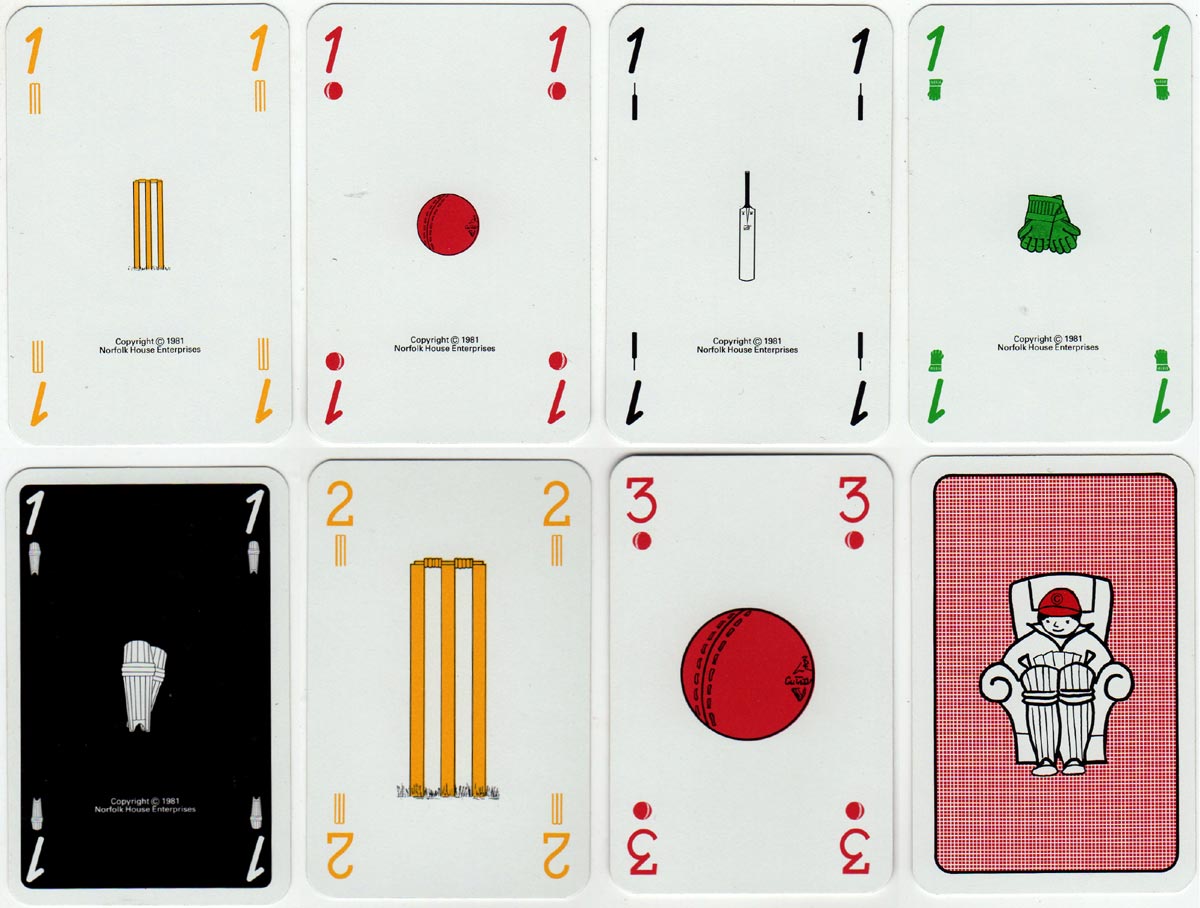
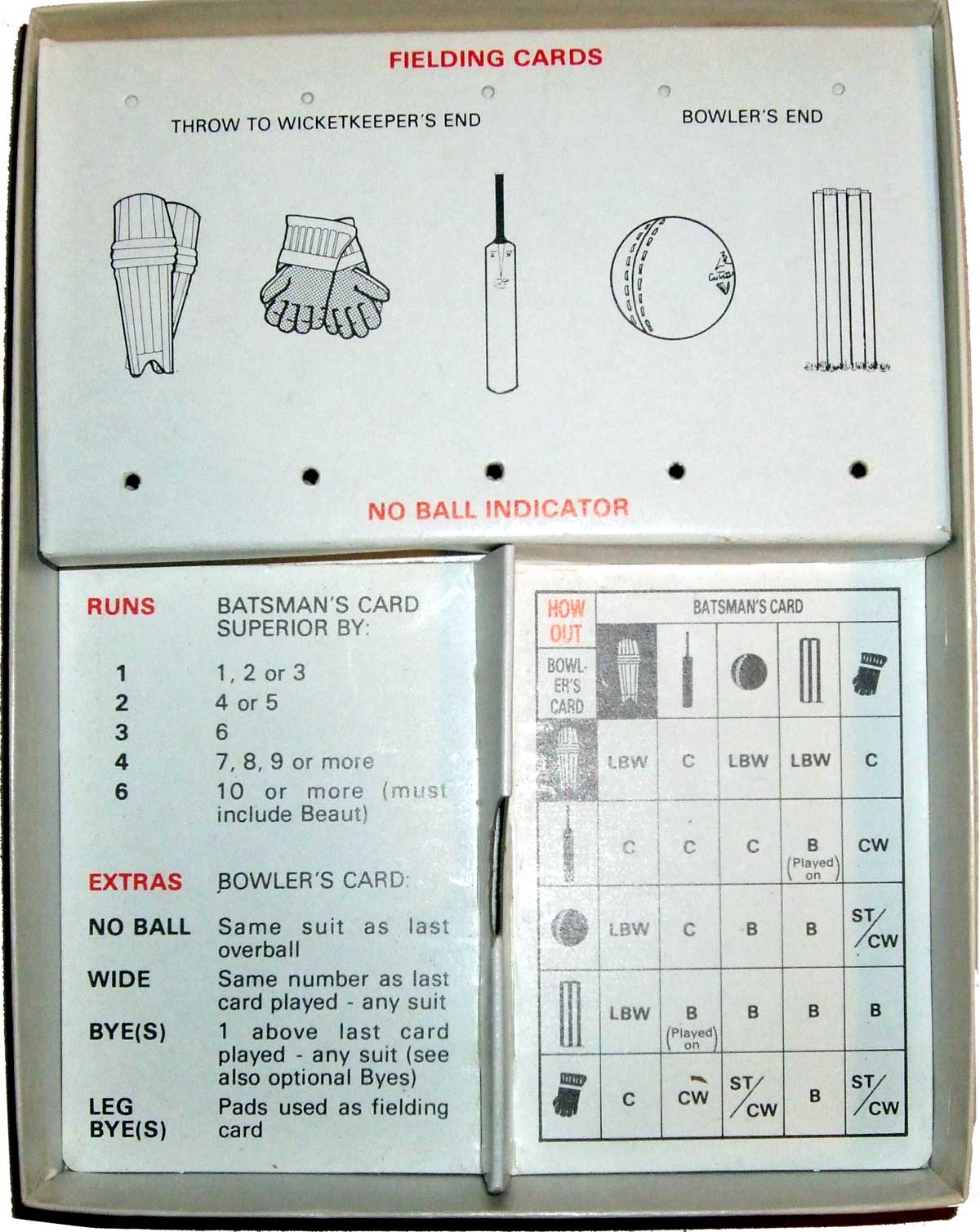
Above: Armchair Cricket, designed by Don Arnold, was first marketed by Norfolk House Enterprises in 1983.
The game is played by two or four players. One player the bowler (fielding team) the other the batting team. In simple terms, the bowler selects a card from their hand, plays it and the batsman then selects a card to counter it. Depending upon the relationship between the two cards the batsman may score runs if the card he plays is of the same suit as that bowled and a higher numerical value, being out if the card played is of a different suit and lower numerical value to that bowled or, alternatively, no further action occurs (the ball may have beaten the batsman but missed the wicket, or the batsman may simply play a defensive shot which does not allow any runs).
The score sheets included are very comprehensive with space for the names of 11 batsmen in each team, who won the toss (got the choice of batting), how each batsman was out, their runs scored, the bowler, total etc., even including space for scores for different days, before lunch, before tea and for the day.
The game was recently revived by Gibsons Games in 1995 and is also sold by Cricket Direct, apparently under the name Quicket.
By Matt Probert
United Kingdom • Member since March 02, 2012
I have adored playing cards since before I was seven years old, and was brought up on packs of Waddington's No 1. As a child I was fascinated by the pictures of the court cards.
Over the next fifty years I was seduced by the artwork in Piatnik's packs and became a collector of playing cards.
Seeking more information about various unidentified packs I discovered the World of Playing Cards website and became an enthusiastic contributor researching and documenting different packs of cards.
I describe my self as a playing card archaeologist, using detective work to identify and date obscure packs of cards discovered in old houses, flea markets and car boot sales.

Leave a Reply
Your Name
Just nowRelated Articles
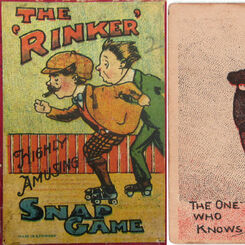
The ‘Rinker’ Snap
The ‘Rinker’ highly amusing snap game, c.1910.
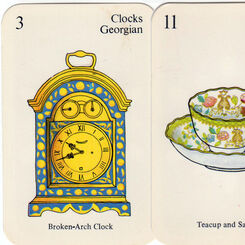
Period Pieces
National Trust Period Pieces Antiques Game produced in 1976 by Dinosaur Publications.
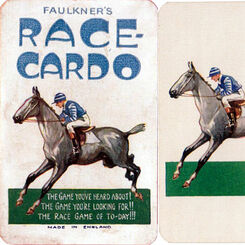
Race-Cardo
Race-Cardo published by C.W. Faulkner & Co Ltd, c.1925.
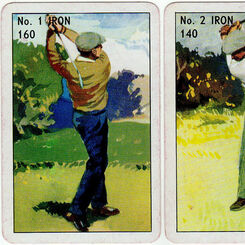
Card Golf
Card Golf published by Pepys Games, c.1960.
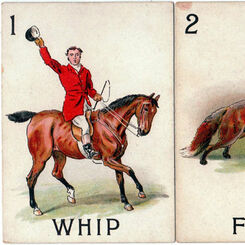
Fox & Hounds
Fox & Hounds card game published by C.W. Faulkner & Co., c.1899.
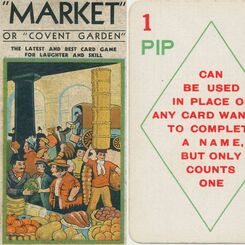
Market or Covent Garden
Market or Covent Garden game published by Kum-Bak, 1930s.

Goal!
Goal! (1st edition) published by Pepys games, 1960.
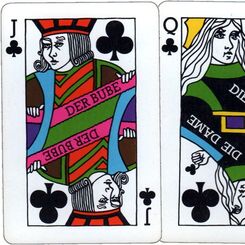
Desperanto
Desperanto language game by Qui Vive Ltd, c.1990.
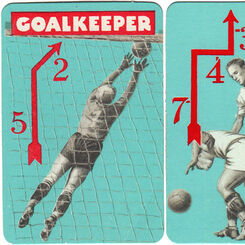
Penalty
Penalty was invented by Ernesto Scola of Milan and published in the UK by Pepys in the 1960s
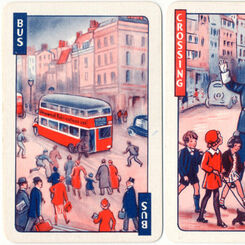
Rush Hour
“Rush Hour” by Universal Publications Ltd, London, c.1935.
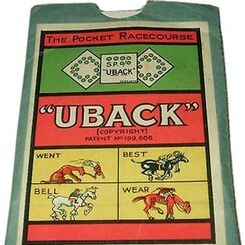
Uback
Uback horse racing game patent specification, Chad Valley Co Ltd, 1922.
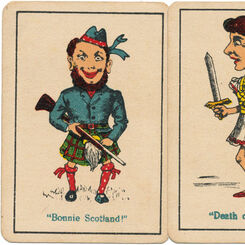
Snap
Spear’s “Snap” card game from the 1920s.
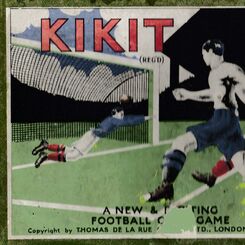
Kikit
Kikit is an indoor football game made by De la Rue, c.1920.

Wimbledon
Wimbledon card game published by Pepys (Castell Bros Ltd), 1959.
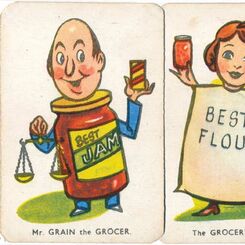
Happy Families No.5367
Tower Press “Happy Families” No.5367
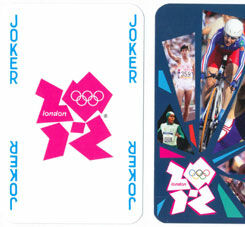
Olympics 2012
Each card features a representation of a different sport at the London 2012 Olympic or Paralympic ga...
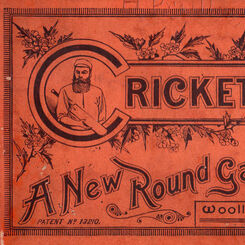
Crickette
“Crickette” card game manufactured by Woolley & Co., London, c.1890.
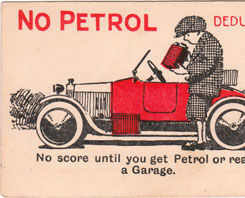
Motor Handicap
‘The Motor Handicap’ card game published by Philpott & Co. Ltd, Surbiton, 1920s.
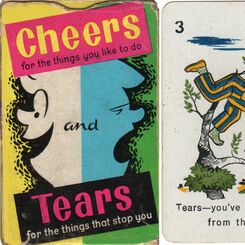
Cheers & Tears
Cheers & Tears by John Waddington Ltd, 1963.
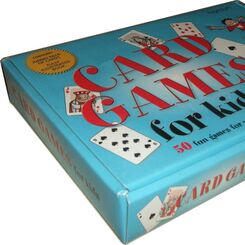
Card Games for Kids
Card Games for Kids by Hamlyn 2004.
Most Popular
Our top articles from the past 60 days


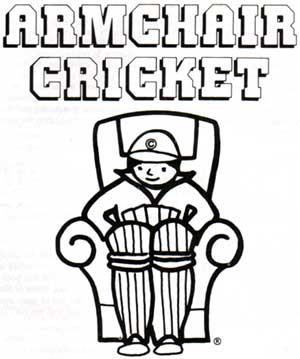
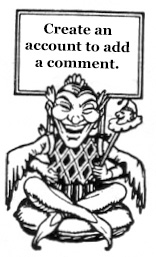 Your comment here. Your comment here. Your comment here. Your comment here. Your comment here. Your comment here. Your comment here. Your comment here. Your comment here. Your comment here. Your comment here. Your comment here. Your comment here. Your comment here. Your comment here. Your comment here. Your comment here. Your comment here. Your comment here. Your comment here. Your comment here. Your comment here. Your comment here. Your comment here. Your comment here. Your comment here. Your comment here. Your comment here. Your comment here. Your comment here. Your comment here. Your comment here.
Your comment here. Your comment here. Your comment here. Your comment here. Your comment here. Your comment here. Your comment here. Your comment here. Your comment here. Your comment here. Your comment here. Your comment here. Your comment here. Your comment here. Your comment here. Your comment here. Your comment here. Your comment here. Your comment here. Your comment here. Your comment here. Your comment here. Your comment here. Your comment here. Your comment here. Your comment here. Your comment here. Your comment here. Your comment here. Your comment here. Your comment here. Your comment here.




















